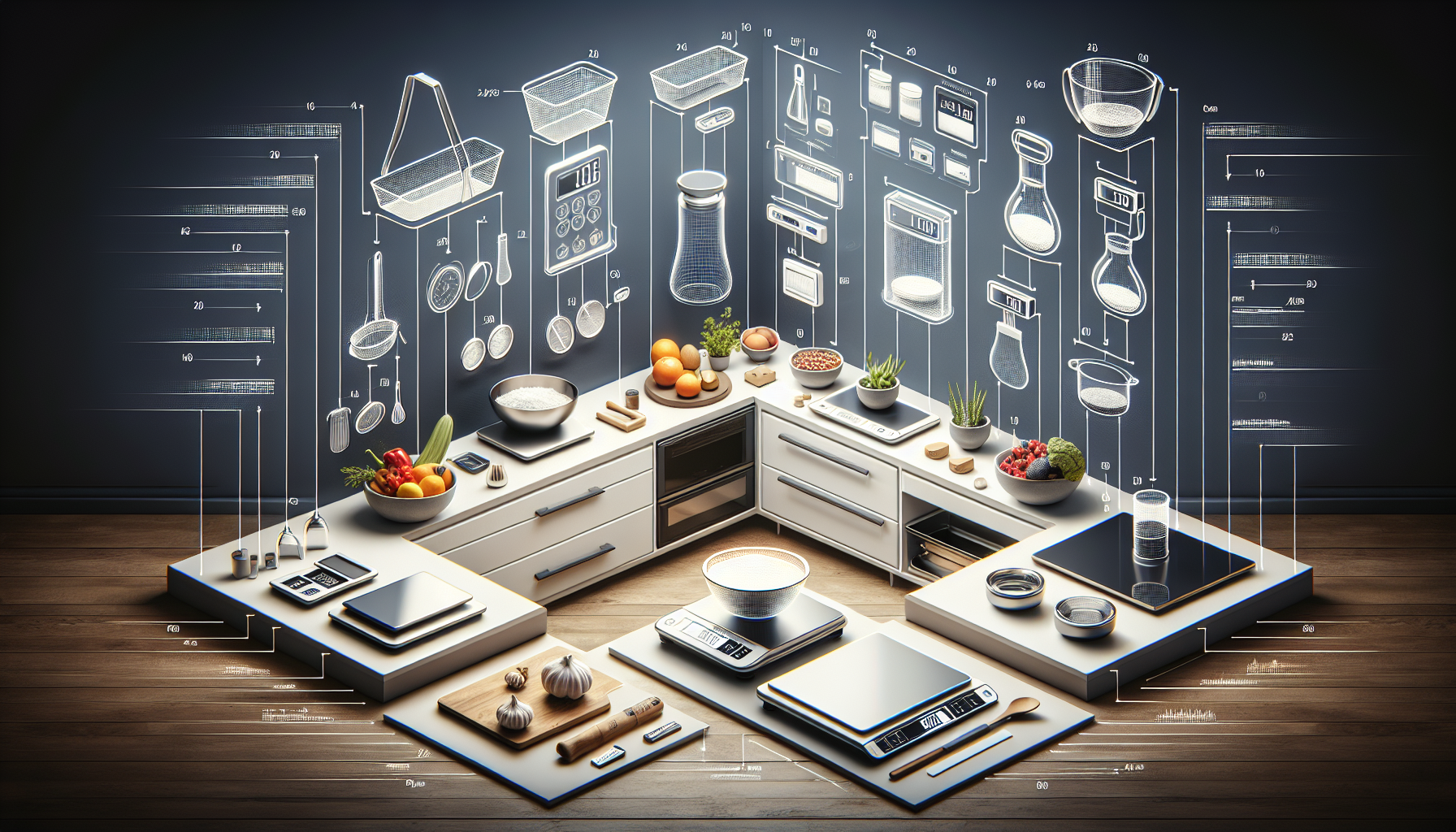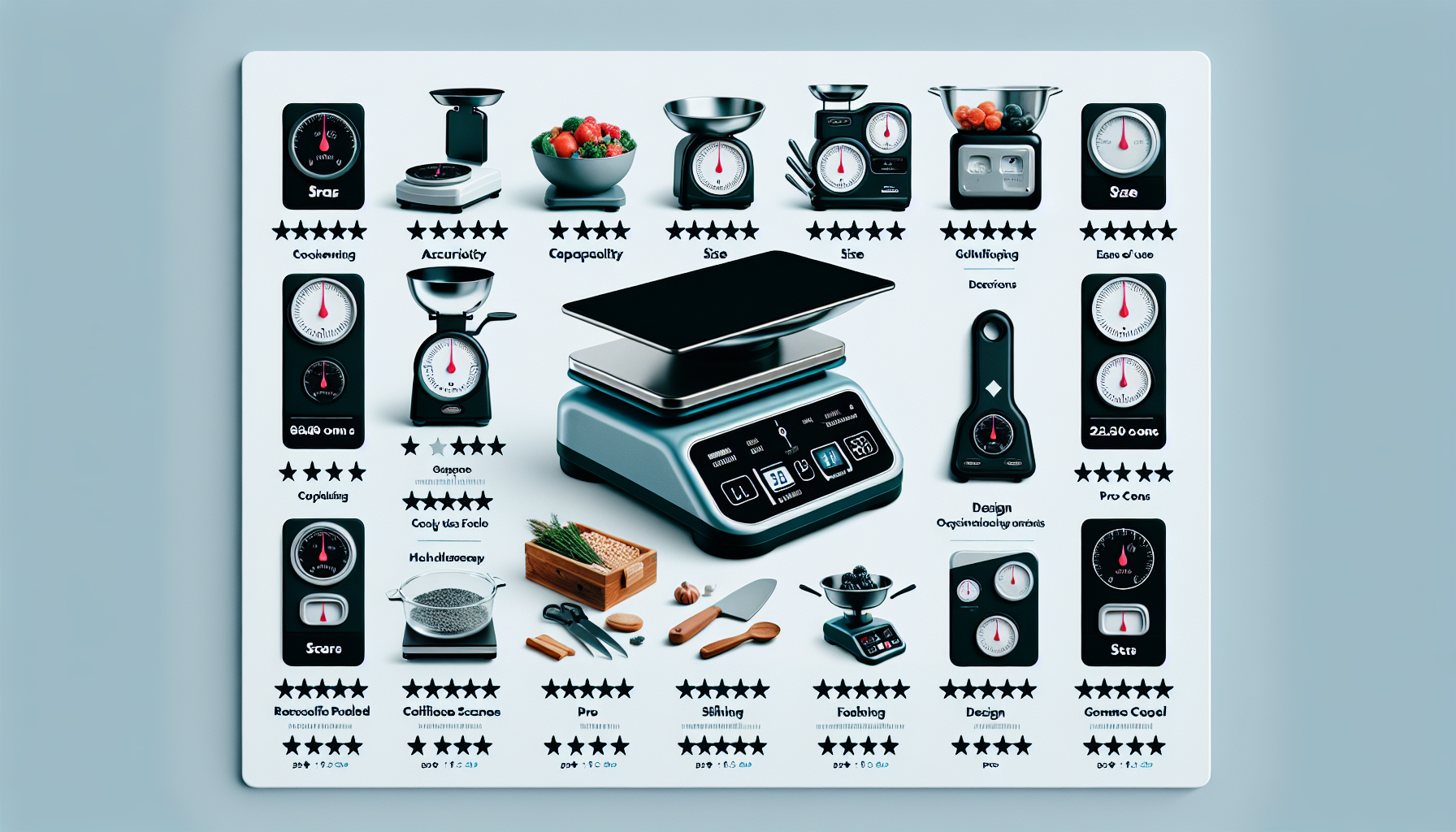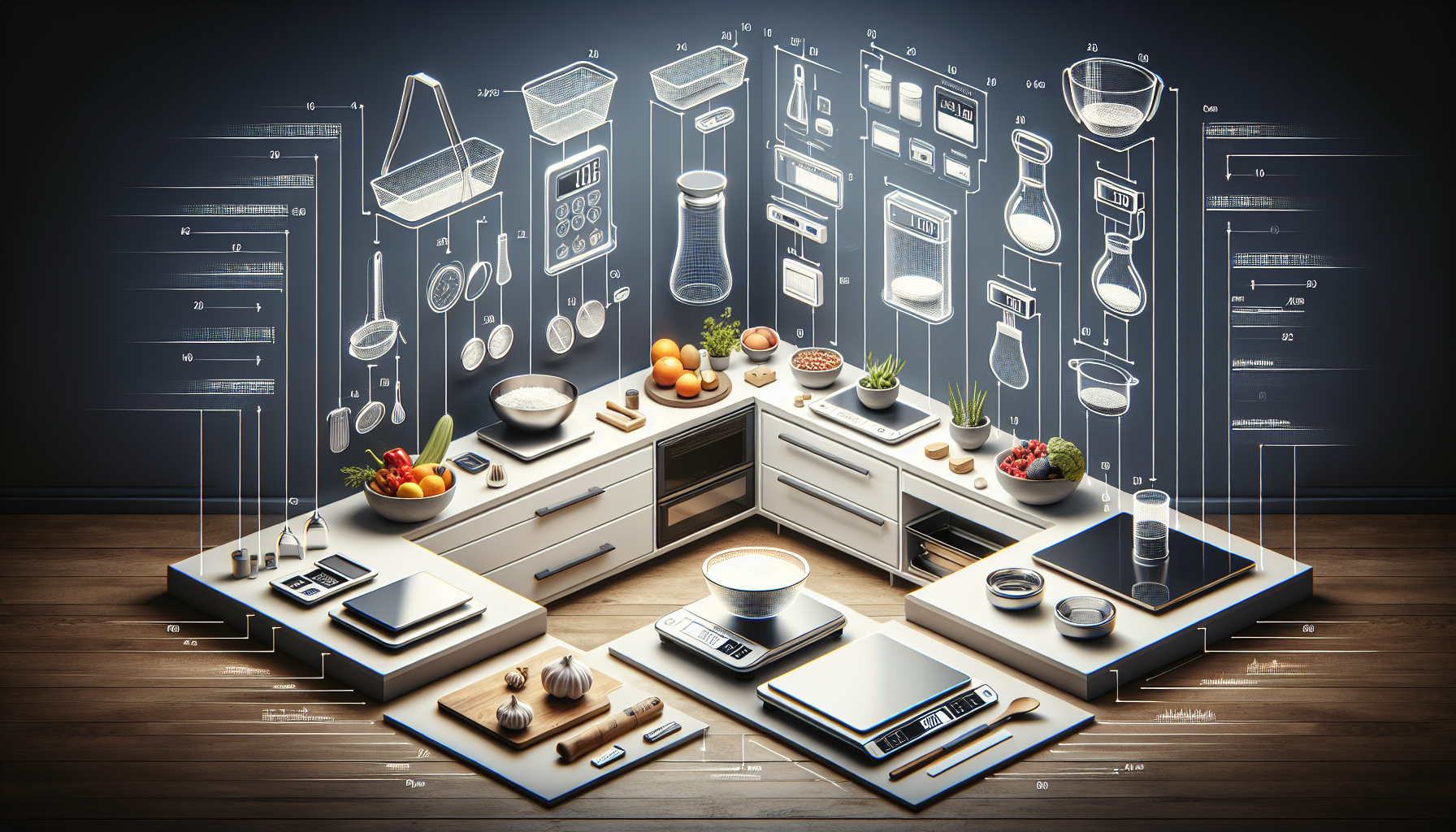Are you tired of always having too much or too little when you cook for yourself? It’s time to invest in a kitchen scale that is perfect for solo cooking. But with so many options out there, how do you know which one is right for you? In this article, we will guide you through the process of choosing the perfect kitchen scale, making your solo cooking adventures a breeze. From size and capacity to precision and ease of use, we’ve got you covered. So let’s get started and find the ideal kitchen scale to help you achieve culinary perfection in your solo cooking endeavors.
Factors to Consider
When it comes to choosing the right kitchen scale for solo cooking, there are several important factors to consider. From accuracy and weight capacity to unit of measurement and display, each factor plays a critical role in ensuring you have the best kitchen scale for your needs. Additionally, factors such as tare function, size and design, maintenance and durability, power source, price, and additional features should also be taken into account. By carefully evaluating these factors, you can make an informed decision and find the perfect kitchen scale to enhance your solo cooking experience.
Accuracy
Accuracy is of utmost importance when it comes to selecting a kitchen scale. After all, you rely on the scale to provide precise measurements for your recipes. Look for a scale that offers high accuracy, preferably with measurements in increments of at least 1 gram. This level of accuracy ensures that you can accurately measure ingredients, helping you achieve consistent results in your cooking.
There are two main types of kitchen scales to consider in terms of accuracy: digital scales and mechanical scales. Digital scales, with their precise electronic measurements, are known for their high accuracy. On the other hand, mechanical scales may not provide the same level of accuracy, as they often rely on springs and levers for measurement. Therefore, if accuracy is your top priority, it is recommended to opt for a digital kitchen scale.

Weight Capacity
Determining your weight capacity needs is crucial to ensure that your kitchen scale can adequately handle the amount of ingredients you typically work with. Consider the types of recipes you frequently prepare and the maximum weights you would need to measure. This will help you determine the necessary weight capacity for your kitchen scale.
Kitchen scales typically have weight capacities ranging from 1kg to 10kg. If you often cook large meals or bake in bulk, a scale with a higher weight capacity would be more suitable. However, if you primarily cook for yourself and prepare smaller portions, a lower weight capacity may suffice. It is essential to choose a scale that can handle your daily cooking needs without any limitations.
Unit of Measurement
The unit of measurement is another factor to consider when choosing a kitchen scale. The most commonly used units of measurement are grams and ounces. It is beneficial to select a scale that offers multiple unit options, as this allows for flexibility when following different recipes. Some scales even provide conversions between different units, making it easier to switch between measurements effortlessly.
Having the ability to switch between grams and ounces is especially valuable when trying out international recipes or when following recipes that use different measurement units. Therefore, opt for a kitchen scale that offers various unit options to ensure versatility in your cooking endeavors.

Display
The display of a kitchen scale is an important aspect to consider, as it directly affects the ease of use and readability. A clear and visible display is crucial to accurately read the measurements without straining your eyes. Look for a scale with a large and brightly lit display to ensure easy readability, even in low light conditions.
Additionally, consider the placement and orientation of the display. Some kitchen scales have displays that are located on the scale’s back, making it difficult to read when using larger bowls or containers. It is recommended to choose a scale with a display that is positioned in such a way that it remains visible, regardless of the container’s size or shape.
Tare Function
The tare function is a valuable feature to have on a kitchen scale, especially when cooking solo. By utilizing the tare function, you can easily subtract the weight of the container or bowl you are using, allowing for more accurate measurements of ingredients. This eliminates the need for mental calculations or removing and replacing ingredients to obtain precise measurements.
When cooking solo, the tare function becomes even more convenient. It enables you to directly measure ingredients into the same container, reducing the number of dishes and utensils you have to clean up. It simplifies your cooking process and saves valuable time, making the tare function a must-have feature for solo cooks.
Size and Design
The size and design of a kitchen scale play a significant role in its usability and practicality. A compact scale is ideal for solo cooking as it takes up minimal counter space and is easier to store when not in use. Look for a scale that is sleek and slim, allowing it to fit seamlessly into your kitchen without adding clutter.
Portability is another aspect to consider when assessing the size and design of a kitchen scale. If you often cook in different locations or need to bring your scale while traveling, opting for a lightweight and portable scale is advisable. Look for scales with a slim profile that can easily be packed or stored in your kitchen drawer.
Furthermore, consider the design options available. Some kitchen scales come in a variety of colors or finishes, allowing you to choose one that matches your kitchen aesthetic. While design may not be the most critical factor, having a scale that complements your kitchen decor can add a touch of style to your cooking space.
Maintenance and Durability
When selecting a kitchen scale, maintenance and durability are essential factors to consider. Look for a scale that is easy to clean to avoid any inconvenience or buildup of residue. Ideally, the scale should have a smooth surface that can be wiped clean with a damp cloth or sponge. This ensures that your scale remains sanitary and hygienic for future use.
Durability is another crucial aspect. A kitchen scale that is made from high-quality materials will be more resistant to wear and tear, ensuring longevity. Consider choosing a scale with a sturdy construction, such as stainless steel or tempered glass, as these materials are known for their durability and ability to withstand regular use in the kitchen environment.
Power Source
The power source of a kitchen scale is an important consideration, as it affects its convenience and portability. There are three main power sources to choose from: battery-operated, USB charging, and AC powered.
Battery-operated scales offer the advantage of portability, as they can be used anywhere without the need for electrical outlets. However, it is crucial to consider the battery life and availability of replacement batteries to ensure uninterrupted use.
USB charging scales eliminate the need for constant battery replacements. They can be conveniently charged using a USB cable and used without being tethered to an electrical outlet. This option is ideal for those who prefer a more eco-friendly solution and enjoy the convenience of not having to worry about running out of batteries.
AC powered scales, on the other hand, offer the benefit of continuous power supply. These scales need to be plugged into an electrical outlet, ensuring consistent performance without the need to recharge or replace batteries. This option is suitable for those who primarily use the scale in their kitchen and have easy access to electrical outlets.
Additional Features
In addition to the essential factors mentioned above, there are several additional features that you may want to consider when choosing a kitchen scale.
A conversion function allows you to easily convert between different units of measurement, eliminating the need for manual calculations. This can be particularly helpful when following recipes that use different measurement systems or when experimenting with conversions.
A memory function is another useful feature, especially if you frequently use the same container or need to weigh multiple ingredients separately. This function allows you to recall previously measured weights, reducing the need for repeated measurements and increasing efficiency in your cooking process.
An auto-off function is beneficial for those who tend to forget to turn off their scale after use. This feature automatically powers off the scale after a period of inactivity, saving battery life and ensuring that you don’t accidentally drain the scale’s power source.
By considering these additional features, you can find a kitchen scale that suits your individual needs and preferences, enhancing your solo cooking experience.
In conclusion, when it comes to choosing the right kitchen scale for solo cooking, it is important to evaluate various factors such as accuracy, weight capacity, unit of measurement, display, tare function, size and design, maintenance and durability, power source, price, and additional features. By considering these factors, you can make an informed decision and find the perfect kitchen scale that meets your cooking needs and enhances your culinary adventures in the kitchen. So, take the time to weigh your options (pun intended) and choose a kitchen scale that will be your trusty companion in solo cooking. Happy cooking!
